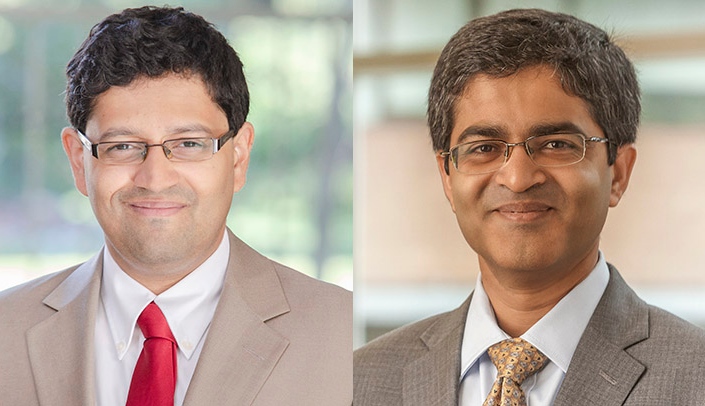Researchers, including investigators from UNMC, have developed a computer algorithm based on artificial intelligence (AI) that can accurately predict the risk for and diagnose Alzheimer’s disease. The algorithm uses a combination of brain magnetic resonance imaging (MRI), testing to measure cognitive impairment, along with data on age and gender.
About the study
The researchers obtained access to raw MRI scans of the brain, demographics and clinical information of individuals with Alzheimer’s disease and the ones with normal cognition from four different national cohorts. Using data from one of these cohorts, they developed a novel deep learning model to predict Alzheimer’s disease risk. They then showed that their model could accurately predict the disease status on the other independent cohorts.
An international team of expert neurologists then was asked to perform the task of detecting Alzheimer’s disease on the same set of cases. In this head-to-head comparison, the algorithm model performed slightly better than the average neurologist. They also showed that model-identified regions of high disease risk were highly aligned with autopsy reports of the brains on a few individuals who were deceased.
Arun Swaminathan, M.B.B.S., and Sachin Kedar, M.B.B.S., of the UNMC Department of Neurological Sciences, were co-authors on the paper, which appears online in the journal Brain.
“The use of AI in medicine is a rapidly expanding field and heralds a future where man and machine will complement each other in diagnosis and treatment of various conditions,” Dr. Swaminathan said. “The use of AI in diagnosing patients with dementia, as demonstrated in this study, is a first step in developing better diagnostic algorithms for dementia and other neurodegenerative disorders to enable earlier detection and prompt treatment for these conditions.”
With an aging population, the burden of neurodegenerative diseases such as Alzheimer’s dementia, will continue to increase, Dr. Kedar said.
“A projected national shortfall of neurologists, particularly in rural and midwestern states, will adversely impact care for our patients with dementia,” he said. “AI based tools can support clinicians caring for patients with Alzheimer’s disease in our resource-limited geographical region. This collaborative study provides a first step in the use of AI in diagnosing Alzheimer’s dementia using commonly available clinical tests and radiological images.”
The AI strategy, based on a deep learning algorithm, is a type of machine learning framework. Machine learning is an AI application that enables a computer to learn from data and improve from experience.
“If computers can accurately detect debilitating conditions such as Alzheimer’s disease using readily available data such as a brain MRI scan, then such technologies have a wide-reaching potential, especially in resource-limited settings,” said corresponding author Vijaya B. Kolachalama, Ph.D., assistant professor of medicine, Boston University. “Not only can we accurately predict the risk of Alzheimer’s disease but this algorithm can generate interpretable and intuitive visualizations of individual Alzheimer’s disease risk en route to accurate diagnosis.”
Dr. Swaminathan said he was pleased to be part of the study and looked forward to similar studies and and collaborations in future.
“I’m excited to participate in such cutting edge multi-centric research involving UNMC and other prominent research institutions and look forward to helping develop many such novel diagnostic and therapeutic approaches in future,” he said.

Thank you both for the admirable work you do!
Congratulations Dr. Kedar!